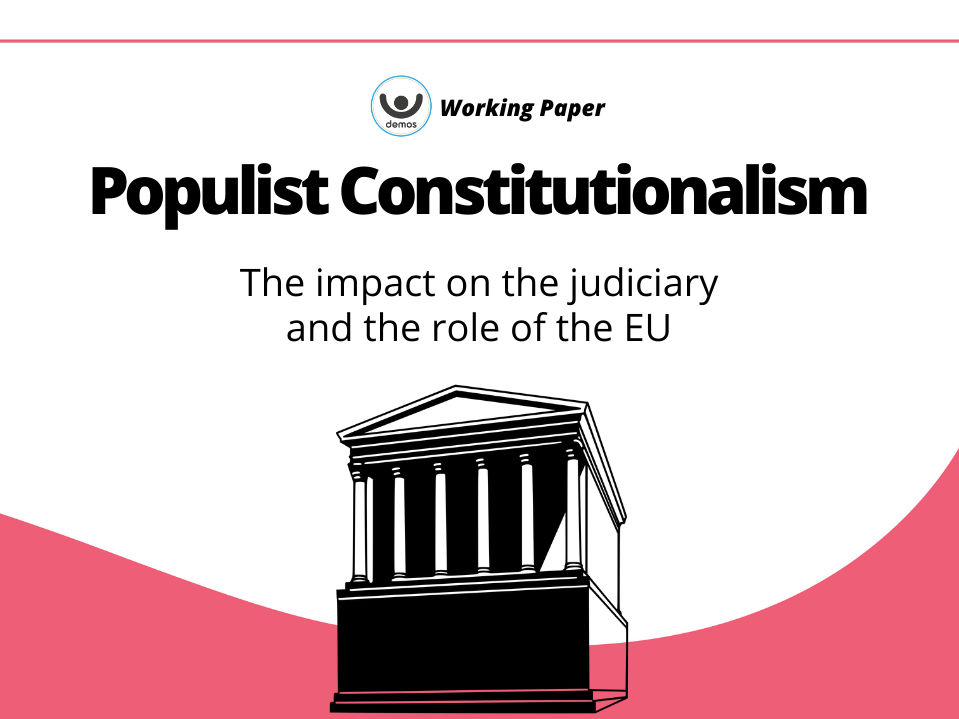Populist Leaders Change the Judiciary to Increase Power
Populist leaders often try to change democratic institutions to affirm the primacy of the people’s will, or so they say. A new DEMOS research claims that those changes have only loosened constraints on their power. The conclusion stems from an extensive research that investigated the clash between populism, counter-majoritarian institutions, and EU law and values in European countries, particularly in Hungary, Poland, Czechia, and Slovakia. Results cast light on populist constitutionalism and judicial populism — and open pathways for policies to remedy their impact such as democratic backsliding. POPULIST CONSTITUTIONALISM The research teams at the University of Barcelona, Centre for Social Sciences in Budapest (CSS), and the University of Copenhagen, authors of the analysis, explain that populist leaders have shown an appetite for constitutional and legal reform with the solo aim of consolidating their power. The research moves from the assumption that populist constitutionalism in Hungary and Poland has been an overreaction to the legal reforms adopted in Eastern Europe after communism. To move towards EU membership, these countries were encouraged to fully adopt European standards on democracy, without considering the peculiarly of each legal culture. Populist leaders have now been reforming their legal environment. They claim their reforms aim at balancing out democratic powers by promoting the popular will. The problem identified by the research is that populist leaders take the popular will they claim to embody as the only legitimate authority to follow. And “such a claim results in states not fully governed by the rule of law,” professor Josep Castellà Andreu (University of Barcelona), who led the DEMOS research, says. Stronger populist control over the judiciary may result in less political freedom. Without independence and powers to effectively carry out their mandates, judges can do little to safeguard individual rights and oversee government’s actions. “This has happened in Hungary and Poland, where the constitutional courts have been captured by the ruling majority,” the authors report. Both countries weakened the judiciary by trying to lower the retirement age for judges, and by appointing government-friendly chiefs to lead judicial institutions. Spain has been observed for the entirely parliamentary appointment of its Judicial Council and the current proposal to reduce the qualified majority needed for those appointments. Ensuring the participation of judges and other actors in decision-making processes — from the appointment of judges to constitutional revision — may help counter populist influences. Czechia follows that model, and has better resisted the populist wave rolling in from its right-wing, populist-led neighbouring countries. READ MORE Access the full press brief about the research on the DEMOS website: https://demos-h2020.eu/en/populist-leaders-change-the-judiciary-to-increase-power(opens in new window)



